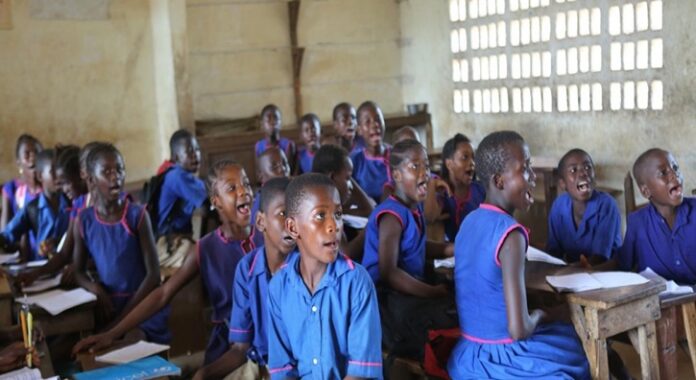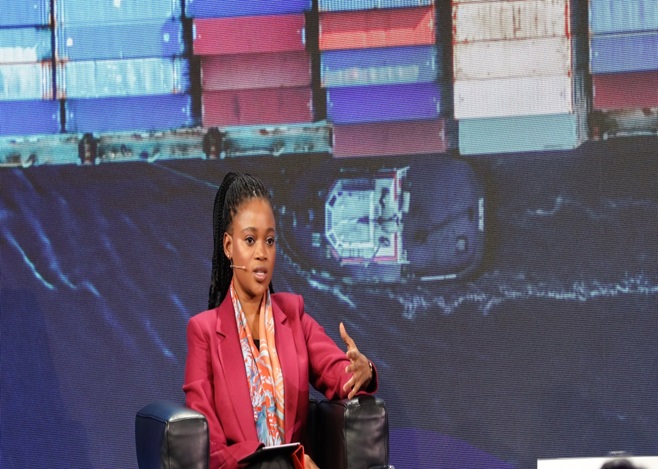For us in Sierra Leone, radical inclusion in education means that we stop at nothing until every child can access quality education, particularly those who are historically, systematically, infrastructurally, geographically and traditionally marginalized.
That means all children, including, pregnant girls, parent learners, children with physical, cognitive or psychosocial disabilities, —— children from poor backgrounds and those living in remote areas.
We’ll stop at nothing until every child can access quality education, particularly those who are historically, systematically, infrastructurally, geographically and traditionally marginalized.
We are also doing a number of things to transform education: –
First, we are building classrooms; we have so far built hundreds of classrooms and plan to build 500 more classrooms over the next two years.
We will continue to support and train teachers. We have trained over 22,000 teachers in the last three years and recruited an additional 12,000.
We have collective bargaining agreements that are improving teachers’ welfare. We have increased teachers’ salaries three times over the last four years.
The integration of technology in education is central to our education policy. We introduced SMS-based solutions for accessing learning materials; there is a dictionary that children can access through SMS. Exam materials can be accessed online.
Dr. David Moinina Sengeh
Current Position: Sierra Leone’s Minister of Basic and Senior Secondary Education & Chief Innovation Officer. He is also the co-chair Transforming Education Summit Advisory Committee, United Nations.
Education Background:
Studied Biomedical Engineering at Harvard University
Did postgraduate studies at the Massachusetts Institute of Technology (MIT)
He co-founded the award-winning NGO Global Minimum (GMin), which aims to promote innovation among students in secondary schools in Africa.
Employment: He previously worked at IBM in Nairobi, Kenya, and in Johannesburg, South Africa, where he helped design and develop healthcare technologies.
When exam results are released, it doesn’t matter where you are, it doesn’t matter how wealthy you are, you can access them by SMS. You may say ‘well, not everybody has a smartphone,’ but every village has a phone, there’s connectivity everywhere. Somebody you know can check your results for free.
The integration of technology in education is central to our education policy. We introduced SMS-based solutions for accessing learning materials; there is a dictionary that children can access through SMS. Exam materials can be accessed online.
We have also expanded radio teaching.
We do school feeding too, which we have expanded from about 200,000 children to about 600,000 currently.
All these and others come with an increased commitment to financing education. We must support children from poor backgrounds who cannot afford to pay school fees, buy textbooks, or buy certain things. It matters that all children, no matter who they are, or where they come from, have access to quality learning.
Allowing pregnant girls back in school was a lot of hard work. It required engaging the President and the Cabinet. There were people, including religious leaders, who preached against it. There were people in civil society who spoke against it. But ultimately, as a people, we understand that when we say universal equity and quality education, you have to give it to everybody.
We should not double victimize children. These girls are under 18. Many of them were probably raped. It did not make sense to kick them out of school.
We updated our tradition and culture to focus on the children and make sure that they are learning.
David Moinina Sengeh is Sierra Leone’s Minister for Education
The text is adapted from the interview with Africa Renewal.
For more information on COVID-19, visit www.un.org/coronavirus







